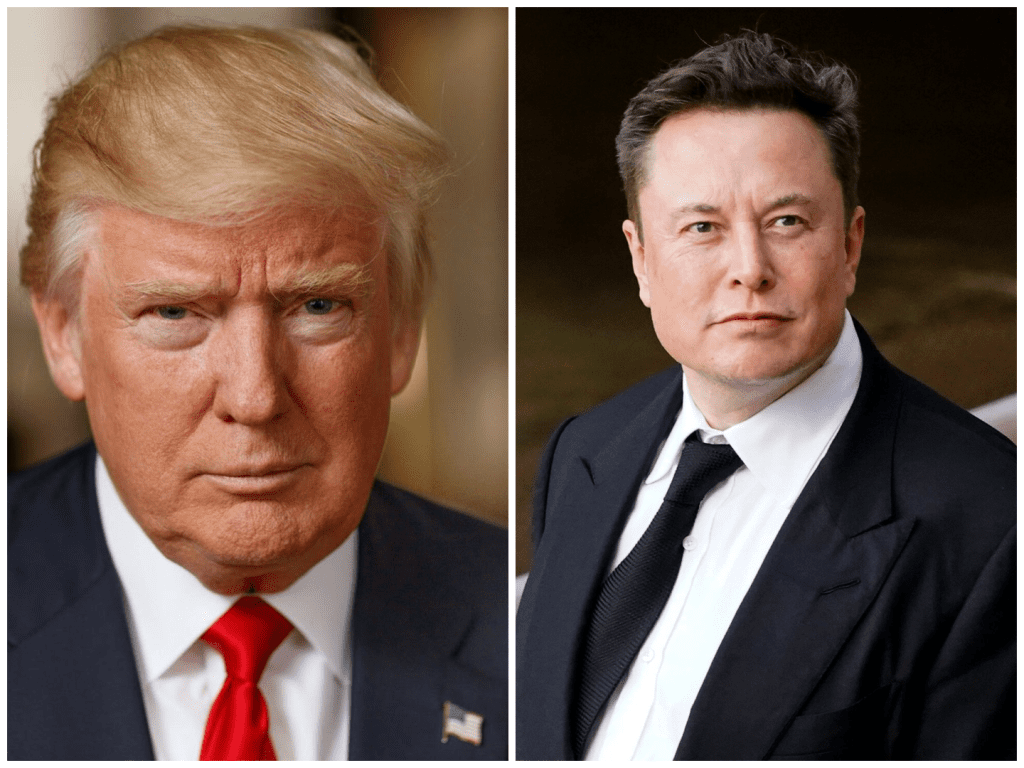Trump Says He’ll “Take a Look” at Deporting Elon Musk — But Is There More to the Story Than Just a Joke?
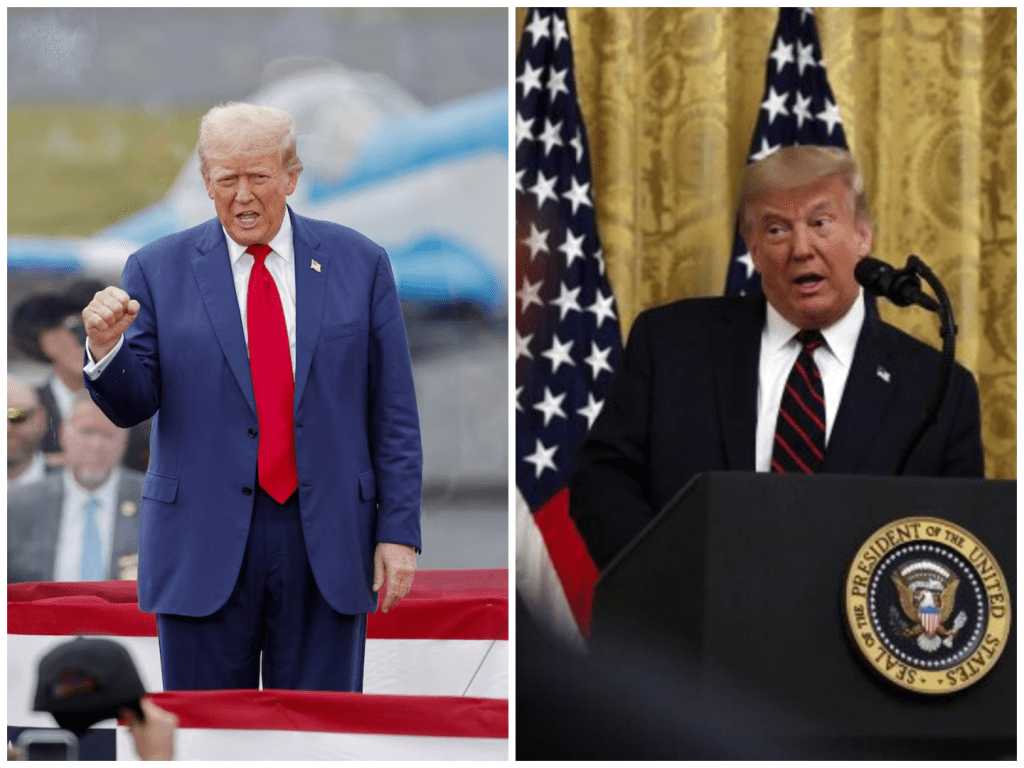
On the morning of July 1, 2025, a familiar scene played out in front of the press: reporters crowding the President, shouting questions, cameras flashing, and Donald Trump soaking in the spotlight before boarding a plane to Florida. He was scheduled to visit a controversial new migrant holding facility known as “Alligator Alcatraz” — a high-security detention center surrounded by Florida swampland. As always, the media frenzy was thick, but one question suddenly shifted the mood from routine to viral: “Mr. President, are you going to deport Elon Musk?”
Trump paused. The moment hung in the air. Then he answered — not with a yes or no, but with the kind of off-the-cuff delivery only Trump could deliver: “I don’t know. We’ll have to take a look,” he said with a grin. “We might have to put DOGE on Elon. You know what DOGE is? DOGE is the monster that might have to go back and eat Elon.”
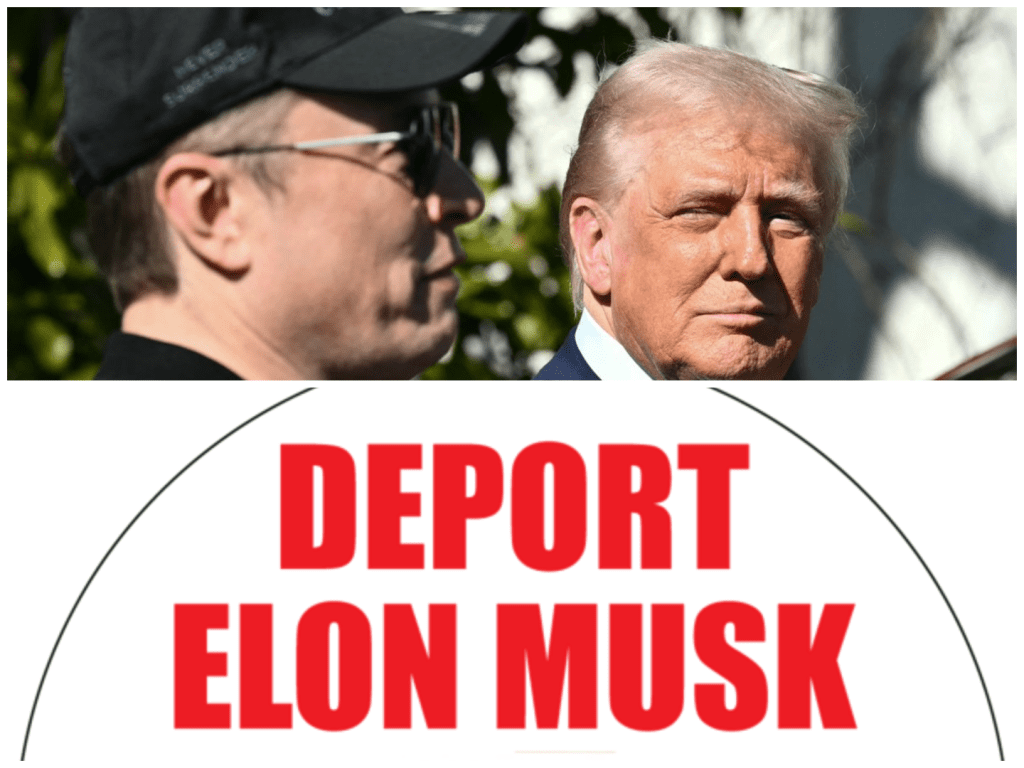
It was part humor, part theater, and part political jab. But whether or not Trump was serious didn’t matter to the internet. Within minutes, “Deport Elon Musk” was trending. Some thought he was joking. Others weren’t so sure. And even more were just confused. Elon Musk is, after all, a naturalized American citizen — born in South Africa, yes, but legally and officially a U.S. citizen. You can’t deport a citizen. That’s not how any of this works. But Trump’s comment still set off alarm bells, especially because of its timing.
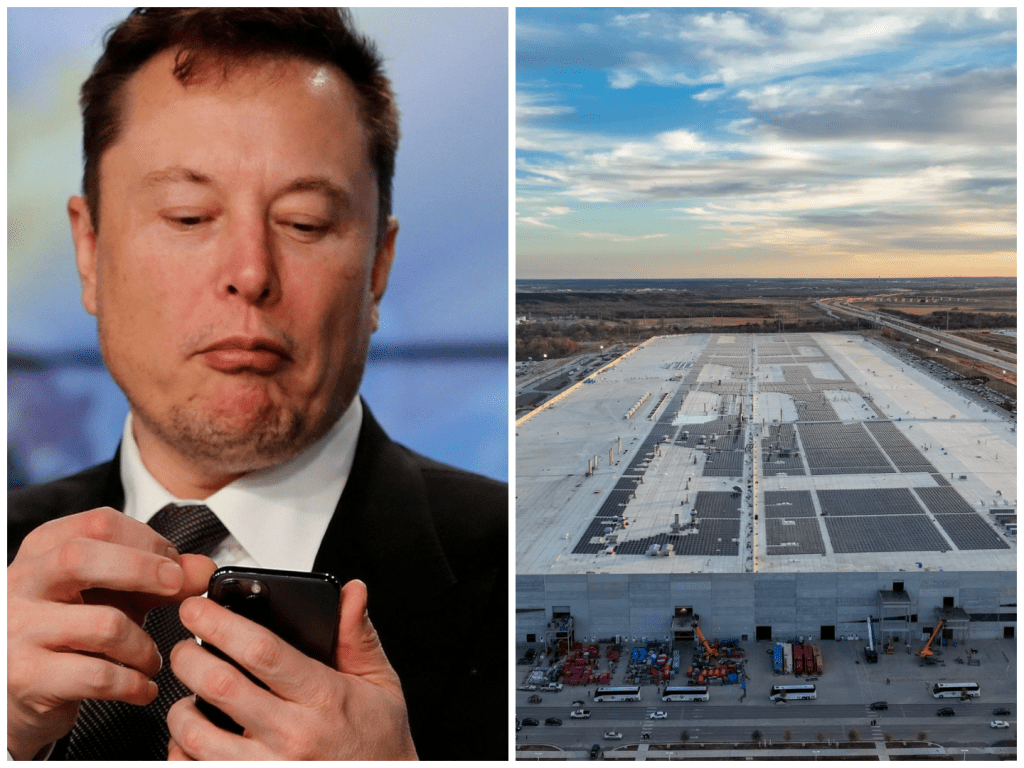
The day before, Musk had used his platform — the social network X, which he owns — to criticize Trump’s economic policies. Specifically, he called out the President’s proposed “One Big Beautiful Bill,” a sweeping piece of legislation that includes massive federal spending on infrastructure, energy, and social programs. Musk didn’t hold back. He warned that the bill would drive inflation and kill millions of jobs. “This is how empires fall,” he wrote. “Spend into oblivion and blame the future.”
For Trump, who’s known to take criticism very personally, especially from high-profile figures, Musk’s words hit a nerve. They weren’t just tweets — they were attacks from someone Trump once considered an ally. Musk had even been named the head of DOGE, the Department of Government Efficiency, earlier in the year. But after growing increasingly frustrated with the administration’s direction, Musk resigned from DOGE just a few weeks ago. His departure was public and loud. His criticism ever since has been sharper with each post.
So, when Trump said he’d “take a look” at deporting Musk, the timing didn’t feel coincidental. It felt like payback. Even if the legal reality makes it impossible, the threat carried weight — not because it could happen, but because Trump put it out into the world like it could.
Elon Musk responded in his usual cryptic style. He posted on X: “So tempting to escalate this. So, so tempting. But I will refrain for now.” No mention of Trump. No long statement. Just those few lines. But they said a lot. The billionaire didn’t deny that he felt attacked. He didn’t laugh it off. And he definitely didn’t apologize. Instead, he chose silence — for now.
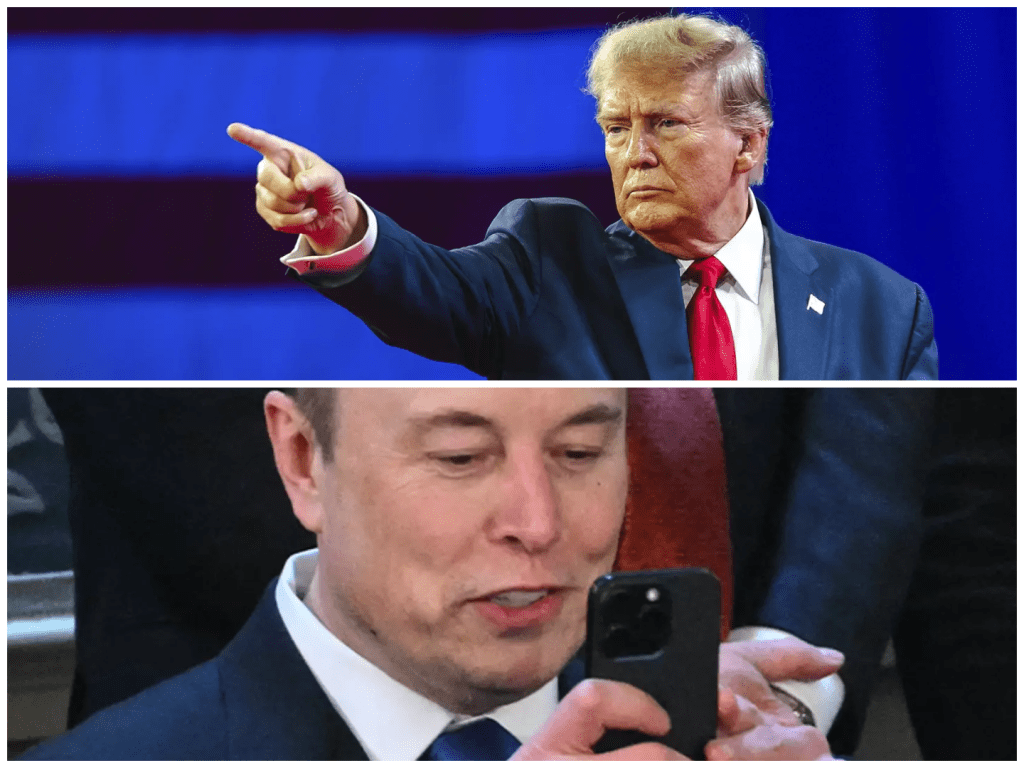
Why This Isn’t Just a Joke
If you know anything about political theater, you know that Trump is a master of it. He doesn’t just speak — he performs. He tosses out dramatic lines like confetti, leaving everyone wondering what’s real and what’s just part of the show. But even jokes have consequences, especially when they come from the most powerful office in the country.
The idea of deporting Elon Musk — one of America’s most famous entrepreneurs — is absurd on the surface. He’s a U.S. citizen. He runs multiple American companies. He’s arguably done more for American tech innovation than almost anyone in the last two decades. But that’s why the comment struck a nerve. It wasn’t about legal reality. It was about political pressure, the power of suggestion, and the message it sends to critics.
What happens when you criticize Trump? Do you get a phone call? A nickname? Or a fake deportation threat on live television? For Musk, the message was loud and clear: you’re either with me, or I’ll turn the crowd against you.
Of course, many Trump supporters loved the moment. They saw it as a strong comeback. In their eyes, Musk had betrayed the cause by turning on the President. They shared memes of Musk on a plane back to South Africa, joked about DOGE agents knocking on Tesla’s doors, and praised Trump for “putting billionaires in their place.”
But others were deeply uncomfortable. Legal experts were quick to remind the public that you cannot revoke someone’s citizenship without an extreme and rare legal process — usually involving fraud during naturalization. Musk has no such allegations against him. He is as American as anyone who passed the process legally. In fact, his companies — including SpaceX and Tesla — are deeply tied to the U.S. economy. They employ tens of thousands of Americans and have government contracts worth billions.
So the threat wasn’t legal. It was emotional. It was symbolic. And in a world where symbols matter more than facts, it made an impact.
The Bigger Picture
This isn’t just about Elon Musk and Donald Trump. It’s about how we talk to each other. It’s about the lines between disagreement and threat. It’s about whether leaders should use their platforms to intimidate or to inspire.
Musk may not be an innocent figure — he’s outspoken, controversial, and no stranger to conflict. But in this case, he didn’t insult Trump personally. He criticized a piece of legislation, something citizens should be allowed — even encouraged — to do. If that’s met with jokes about deportation, it creates a chilling effect. It sends a signal that power comes before principle, and loyalty before liberty.
It’s also a warning to other influential figures. Speak out, and you might become the next headline. Your citizenship might be questioned. Your patriotism might be mocked. Your business might be put under a political microscope.
As for Musk, he hasn’t said much since the incident. But insiders say he’s been in meetings, weighing his next moves. Some believe he’ll go quiet for a while. Others think he might take this moment to jump deeper into politics. After all, he’s already hinted at forming a new party if the “One Big Beautiful Bill” passes. He’s already stepped into government roles. This may be the final push he needed to go all in.
Meanwhile, Trump continues to stir the pot. Whether he meant it or not, the “Deport Musk” line has become part of the 2025 political narrative. And like many things Trump says, it’s probably not the last time we’ll hear it.
